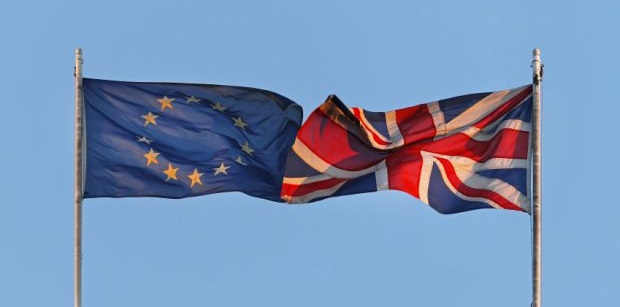
London, United Kingdom | AFP | This week’s latest Brexit-fuelled collapse in the troubled pound is a boon for tourists and multinationals — but spells trouble for the purchasing power of UK households.
Sterling tumbled Tuesday to two-year lows against the euro and dollar, plagued with concern that Britain will crash out of the European Union without a trade deal later this year under new UK prime minister Boris Johnson.
Here is a brief overview of the consequences of the weak pound, which already nosedived in the immediate aftermath of the 2016 shock Brexit referendum.
– Competitiveness of goods –
The weak pound lifts the earnings of UK-based multinationals who export their goods because they become cheaper and therefore more attractive to foreign buyers using stronger currencies.
Those multinationals are also boosted because they earn revenues abroad which are then converted into pounds via a more attractive exchange rate.
This means that revenues can rise even if the actual volume of sales is the same.
Therefore the flagging pound boosts share prices of multinational companies. In turn, that tends to lift London’s FTSE 100 because of the number of them that are listed on the British capital’s benchmark index.
– Inflationary pressures –
A weaker British currency makes imported goods more expensive, and therefore pushes up UK inflation.
Rising consumer prices erode the purchasing power of households, unless average wage growth matches or exceeds the rate of inflation.
After Britons voted in favour of leaving the European Union in June 2016, the 12-month inflation rate accelerated to more than 3.0 percent in late 2017.
Ordinarily this would push a central bank to raise rates, but inflation has since fallen to the Bank of England’s 2.0-percent target.
– Tourists’ delight –
A collapse in the pound means that foreign tourists get more bang for their buck — whether it is euros, US dollars or any other better-performing currency.
That has helped transform Britain into a more affordable and more appealing holiday destination — and hands a major fillip to the nation’s valuable tourism and hotels sector, analysts say.
– Takeover targets –
UK plc has also become a preying ground for cheap takeovers, according to experts.
The plunging value of the pound makes British companies cheaper and therefore more vulnerable to takeovers from foreign counterparts — especially from firms based in the eurozone and the United States, but also elsewhere.
Analysts say that one recent example was last month’s £5.9-billion acquisition of Britain’s Merlin Entertainments — owner of Madame Tussauds waxworks and the London Eye Ferris wheel — by Lego’s Danish parent group Kirkbi.
Another illustration of this is the recent purchase of British aerospace and defence group Cobham by US wireless communications firm Aeroflex for $1.46 billion.
– Bucking the trend? –
One key fallout from Brexit has been the large number of banking organisations that have sought to move staff and operations away from London and into the eurozone.
However, some foreign companies have fought against this trend — because the cost of living in the British capital has fallen.
Bucking the trend, US hedge fund Caxton Associates announced this month that it has shifted its base from New York to London, the Financial Times reported.
Caxton accelerated its hiring in London thanks to a sharp weakening in the sterling exchange rate, it added.
 The Independent Uganda: You get the Truth we Pay the Price
The Independent Uganda: You get the Truth we Pay the Price


